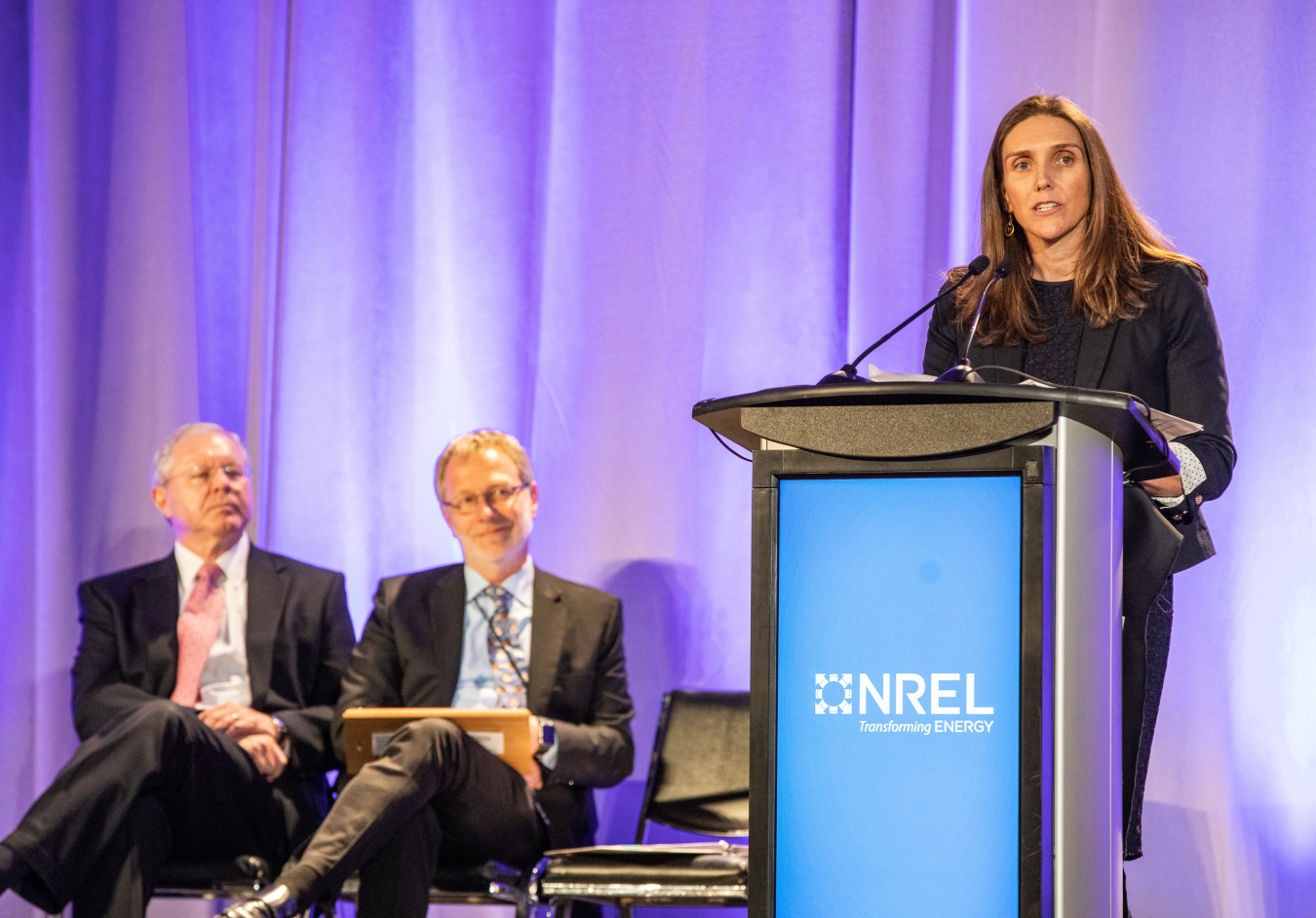Learn why Andrea Watson loves her job as the Director of the Integrated Decision Support group at the National Renewable Energy Laboratory.
September 12, 2019
Andrea Watson leads the Integrated Decision Support group at the National Renewable Energy Laboratory (NREL). She and her team lead complex energy projects and programs that require strategy development, analytics, and technical decision making. Andrea’s expertise lies in strategic planning, change strategies, and decision-making support as applied to clean energy projects and programs. She has specific expertise in clean energy solutions for emission mitigation, international climate change strategies, and renewable energy applications applied to the mining industry. At NREL, Andrea leads the portfolio of work NREL does with U.S. Agency for International Development (USAID) through the USAID-NREL Partnership. The USAID-NREL Partnership works to deliver clean, reliable, and affordable power to the developing world. NREL’s technical assistance and tools help countries with policy, planning, and deployment support for advanced energy technologies.
Andrea graduated from UC Berkeley with an undergraduate degree in integrative biology and from the University of Colorado at Boulder with a master’s of engineering in engineering management. In 2014, she completed a U.S. Department of State Fulbright Scholarship to Chile where she focused on renewable energy decision-making in the mining industry. Andrea has been at NREL since 2009.
What inspired you to work in STEM?
My first love was for biology and the natural world. As an undergraduate I loved studying marine life and was fortunate enough to have opportunities to study in Costa Rica and Australia. My interests quickly turned toward protecting fragile and changing ecosystems. I wanted to be part of the solution, not just someone studying and reporting on the problem (although, that role is hugely important). In energy, I saw the opportunity to work on solutions to improve air quality, support sustainable resilience, and mitigate greenhouse gas emissions.
What excites you about your work at the Energy Department?
I love the opportunity to work on applied technologies and research problems that help people and governments both in the United States and around the world solve the energy problems they have today.
How can our country engage more women, girls, and other underrepresented groups in STEM?
I believe access to mentorship by women and women role models can go a long way. The ability for girls to imagine themselves in a particular career, position, or field of study is incredibly important. This can be done through targeted programs but also can happen organically as organizations hire, recruit, and promote women, as I believe they should focus on doing.
Do you have tips you'd recommend for someone looking to enter your field of work?
My field, applied energy solutions, requires technical prowess and leadership skills. My advice is to pursue both so that you can help find solutions, support decision making, and realize efficient uptake of clean energy technologies.
When you have free time, what are your hobbies?
In my free time, I love to spend time with my family, especially my 15-month-old daughter. In addition, I love rock climbing, being in nature, and the occasional tennis game.
Learn more about our programs & resources for women and girls in STEM at http://www.energy.gov/women

